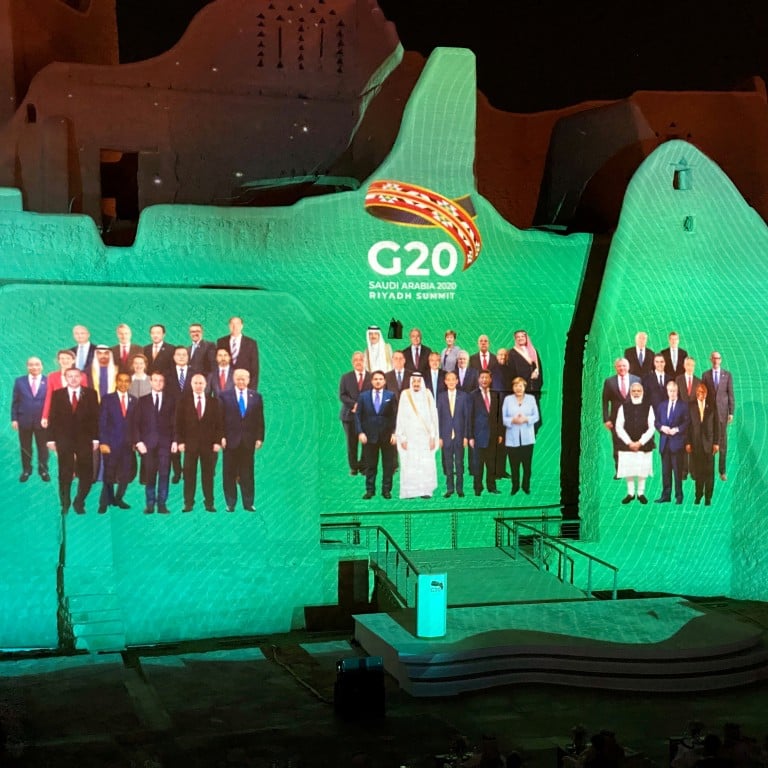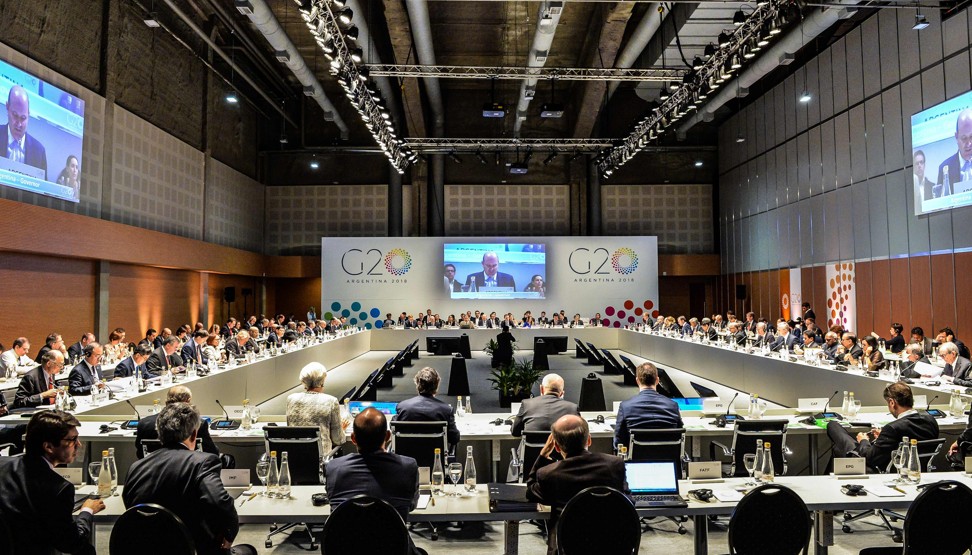
Explainer | What is the G20 summit and why is it important?
- The next Group of 20 (G20) summit will take place between October 3-31, 2021, in Rome, Italy, involving world leaders from 19 countries and the European Union.
- The G20 leaders held an extraordinary G20 summit in March 2020 to discuss the impact of the coronavirus
The next Group of 20 (G20) summit will take place between October 3-31, 2021, in Rome, Italy, involving world leaders from 19 countries and the European Union.
What is the G20?
In 2021, Algeria, Brunei-Darussalam, DR Congo, Malaysia, New Zealand, Rwanda, Switzerland and the Philippines were invited as guest countries.
In 2020, regional organisations were also invited, including the Arab Monetary Fund, the Islamic Development Bank, the Association of Southeast Asian Nations, the African Union, the Gulf Cooperation Council, and the New Partnership for Africa's Development.
It was established in 1999 to broaden the remit of the G7 – a grouping of the world’s most powerful nations, and its primary mandate is to “prevent future international financial crises”.
How often does the G20 meet?
The G20 rotates chairpersons and the members’ leaders initially met twice a year, but this was reduced to once a year since 2011. The leaders’ meetings are usually preceded by ministerial meetings by trade ministers, finance ministers and central bank governors, which are designed to set the agenda for the meetings of the world’s most powerful leaders.
At the end of 2020 summit, Saudi Arabia’s Crown Prince Mohammed bin Salman proposed holding two G20 summits annually in the future: one, virtually, mid-year, and a second in-person at the end of the year.
Italy assumed the G20 presidency in 2021.
Indonesia will assume G20 presidency in 2022 after a swap with India, which will chair the world’s biggest economies summit in 2023, the Indonesian foreign minister said at the end of the 2020 summit.
Retno Marsudi said the change of plan was agreed considering that Indonesia would also chair the Association of Southeast Asian Nations (Asean) in 2023.
What have been the G20’s perceived achievements?
The leaders’ summits usually have a number of overarching themes. In Buenos Aires in 2018, these were “the future of work, infrastructure for development and a sustainable food future”.
The 2019 G20 summit discussed eight themes: global economy, trade and investment, innovation, environment and energy, employment, women's empowerment, development, and health.
The G20 was also credited with helping avert a shift to protectionism post-global financial crisis in 2008, tripling the International Monetary Fund’s budget and giving development banks more remit.
What have been the G20’s perceived failings?

The G20 is widely perceived to have failed to address global inequality. The expansion of the G7 to include more emerging economies brought hope that this would be addressed, but in most member states, inequality is widening.
The G20, like many plurilateral organisations, is often dismissed as a “talking shop”, where leaders offer plenty of bluster, but achieve very little material progress.
What has been the response from the G20 to the coronavirus pandemic?
"We are injecting over US$5 trillion into the global economy, as part of targeted fiscal policy, economic measures, and guarantee schemes to counteract the social, economic and financial impacts of the pandemic," the leaders said in a statement after the emergency online summit in March.
They also pledged to work swiftly with multilateral bodies, such as the International Monetary Fund, the World Health Organization and regional banks, to deploy a "robust" financial package to support developing nations.
In September 2020, trade and investment ministers from the G20 major economies also vowed via video conference to take all possible steps to achieve recovery from the coronavirus pandemic, saying they remain “gravely concerned” at the serious risks posed by the global crisis to all countries.
“We will continue to do whatever it takes and to use all available policy tools to minimise the economic and social damage of the pandemic, restore global growth, maintain market stability, and strengthen resilience,” the ministers said in a joint statement following the meeting in September chaired by Saudi Arabia.
"We have mobilised resources to address the immediate financing needs in global health to support the research, development, manufacturing and distribution of safe and effective Covid-19 diagnostics, therapeutics and vaccines," the G20 leaders said in a closing statement after the virtual summit hosted by Saudi Arabia in November 2020.
The G20 leaders also said in its communique in 2020 that they were determined to support African countries in overcoming the coronavirus crisis, including by exploring more sustainable financing options.
What else did the G20 say after its 2020 summit?
Leaders of the world’s 20 biggest economies said at the end of their 2020 summit that a multilateral trading system was as important as ever due to the coronavirus crisis, as they also pledged to keep markets open and achieve a fair and stable trade and investment environment.
The G20 also called on the International Monetary Fund (IMF) to continue exploring additional tools that could help its members as the crisis evolved.
The leaders also endorsed a plan to extend a freeze in debt service payments by the poorest countries to mid-2021 and also endorsed a common approach for dealing with debt problems beyond that.
They also said they strongly encouraged private creditors to participate in the initiative on comparable terms when requested by eligible countries.

